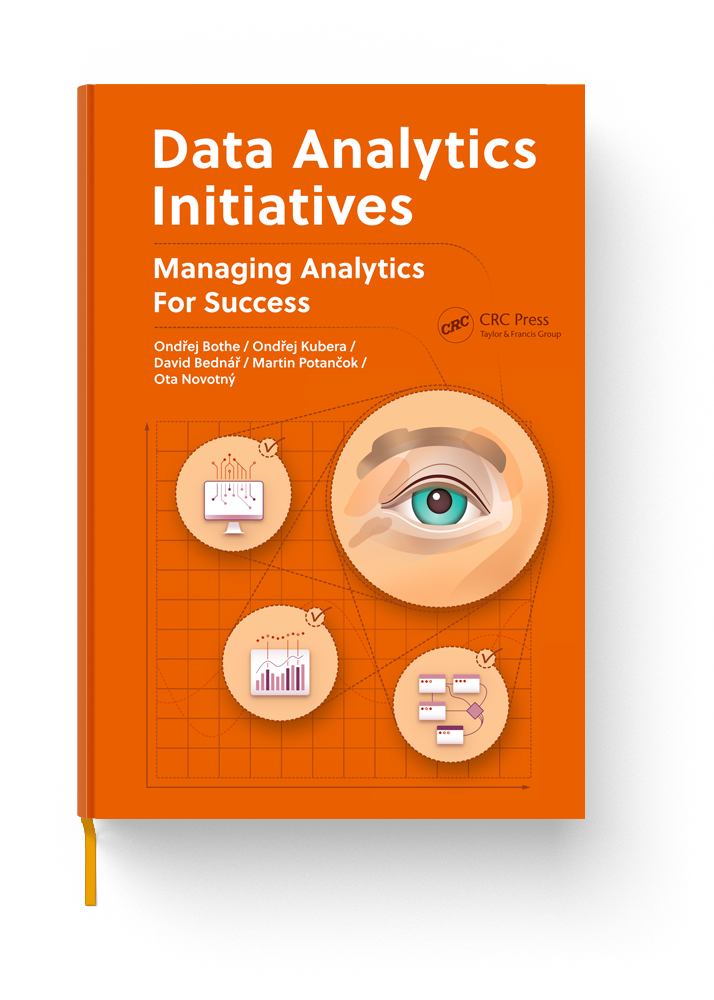Data analytics initiatives
Managing Analytics For Success
Data analytics initiatives have their tricky parts. Combine technical and managerial perspectives and learn a new framework. Apply it to your analytics project, avoid common mistakes, and improve your analytics services.


Language: English
Number of pages: 168
ISBN-10: 1032302402
ISBN-13: 978-1032302409
About the book

The three-axis approach to analytics projects

Common attributes of analytics projects

General areas of risks and challenges

Typical failures and risks per projects types

Typical questions for analytics projects
In the last chapter of the book, we will try to provide you with some examples of questions that could be asked of relevant people in order to analyse the project. These questions may help you position the project correctly on each axis and understand the commonalities and general project challenges. This serves only as an example and may differ greatly based on your company and environment.
Artefact downloads
Typical questions for analytics projects.xlsx
Typical questions for analytics projects.odt
This book was written thanks to the support of the Data & Business platform and long-term institutional support of research activities by the Faculty of Informatics and Statistics, Prague University of Economics and Business (IP40040).
Training
We are offering three types of trainings to organisations and other groups.
Target audience
Our trainings is intended for anyone keen to understand the complexity of analytics projects, without depending on specific technology. The training can be valuable regardless of whether you have read the book or not. You can start with the book and appreciate going deeper into the selected topics and discussing concrete ideas in the training. Alternatively, start with the insights from the interactive training and enrich the experience with additional details from the book afterwards.
The three-axis approach to analytics projects
The first one focused mainly on the content from the book’s first part – the definition of a three-axis Framework. In the four-hour session, we will go over concrete examples from projects to discuss the crucial aspects of the framework. This approach will ensure that you will understand the concepts in deep detail. It will improve your capability to leverage them in real life.
Commonalities, specifics and risks of analytics projects
Customized
The typical training participants include
- Project managers and delivery leads
- Data engineers, architects, data scientists and other data and analytics professionals
- Business analysts and product owners
- Students
Price and location
Why choose our training?
Generally, we try to support as much discussion as possible during the training. You are encouraged to bring your specific situations or examples. We will connect them into the analytical context, which could help you leverage the newly gained knowledge.
How to register
Are you interested in the training? Feel free to contact us! It does not matter whether you are looking for standard training or a customised session – we will try to find a way help you.




